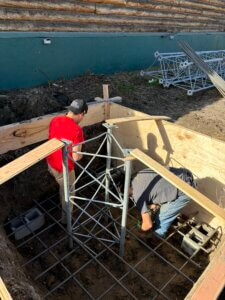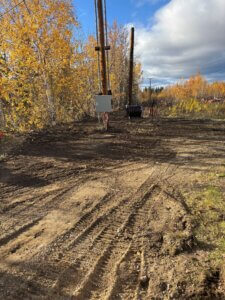by Matt Glover, Broadband Program Manager
TCC’s broadband program is committed to expanding reliable, high-speed internet to villages across Alaska’s interior. With critical federal support, we’ve secured substantial grants—including $4.5 million from the NTIA Tribal Broadband Connectivity Program (TBCP) and $65 million from the USDA ReConnect Program for projects throughout the TCC region. These funds will support broadband development in Northway, Nenana, Eagle, Dot Lake, Evansville, Alatna, Allakaket, Huslia, Fort Yukon, Venetie, Chalkyitsik, and Circle.
In addition to these projects, TCC has applied for a $77 million grant to extend fiber along the Yukon River from Tanana to Holy Cross and is also preparing to apply for the state’s Broadband Equity, Access, and Deployment (BEAD) program, which has earmarked over $1 billion to expand broadband access across Alaska. These combined efforts represent a long-term investment in essential broadband infrastructure. However, a common question has arisen: Why invest in fiber when satellite options like Starlink are already available?
Why Fiber? The Case for Long-Term Community Infrastructure

Satellite internet options like Starlink have improved connectivity in some areas, providing a helpful solution for households with immediate internet needs. TCC’s commitment to fiber infrastructure goes beyond today’s needs. Here’s why fiber is at the core of TCC’s broadband strategy and how it meets the unique demands of Alaska’s rural communities:
1. Built to Serve Whole Communities
Fiber networks are designed to meet the needs of everyone in the community—individual households, schools, health clinics, and local businesses. Like other utilities, such as water and power, fiber is a reliable foundation that can serve the whole community, providing robust internet service that works consistently for a range of essential services. For many TCC communities, fiber means better access to education, healthcare, and economic opportunities close to home.
2. Tribally Owned Infrastructure with Local Management
Fiber infrastructure in TCC’s broadband projects will be a tribally owned asset, offering a lasting resource that belongs to the communities it serves. While day-to-day operations may involve commercial, for-profit operators in some areas to ensure the network runs effectively, the ownership of the fiber network remains with the community. This approach balances efficient service management with local ownership, providing the authority and control for TCC communities to adapt the network to their needs over time.
3. Ready for Tomorrow’s Needs
Fiber is more than fast internet; it’s a resource that can scale up to meet future demands. As education, healthcare, and work continue to move online, fiber networks can handle increased data and support growth, ensuring that TCC communities have reliable connectivity for years to come. Building this infrastructure now means fewer limitations in the future, supporting residents who want to work, study, or access healthcare without leaving their villages.
4. Funded by and for TCC Communities
With over $69 million in federal grants, TCC is working to build a durable infrastructure that is typically challenging to develop in rural areas. Current projects are in stages like environmental permitting, route planning, and early construction preparation, with initial fiber work expected in Northway this winter and broader projects anticipated to begin in 2026. By pursuing additional support through grants like BEAD, TCC is committed to expanding broadband access across the interior at a scale that truly benefits the region.
5. A Utility for the Future
Just like electricity and water, reliable internet is essential for daily life. By establishing fiber as a community asset, TCC is creating a stable, long-term resource that residents can depend on for school, work, healthcare, and community life. While satellite services like Starlink provide short-term flexibility, fiber offers a lasting, community-owned solution that will serve the digital needs of the entire region.
Looking Ahead: Building for the Next Generation

For communities in the TCC region, fiber means reliable, tribally owned internet infrastructure that can support long-term essential services. While some initial groundwork is underway, major construction phases are planned for 2026, funded by TBCP, USDA ReConnect, and potentially the State of Alaska’s BEAD program.
The goal isn’t to replace any existing option but to provide a stable, resilient network that serves the whole community. TCC is focused on building a sustainable resource that empowers residents to stay connected to their homes and communities while participating fully in the digital world.
